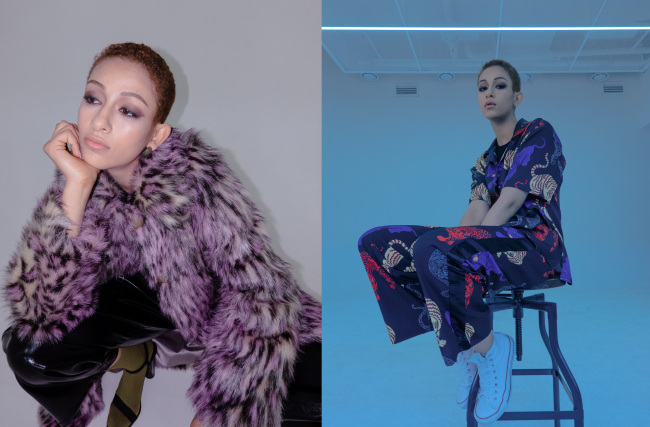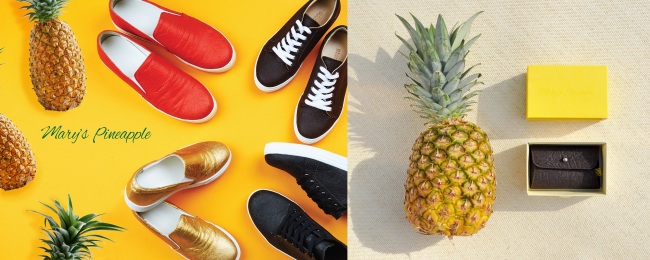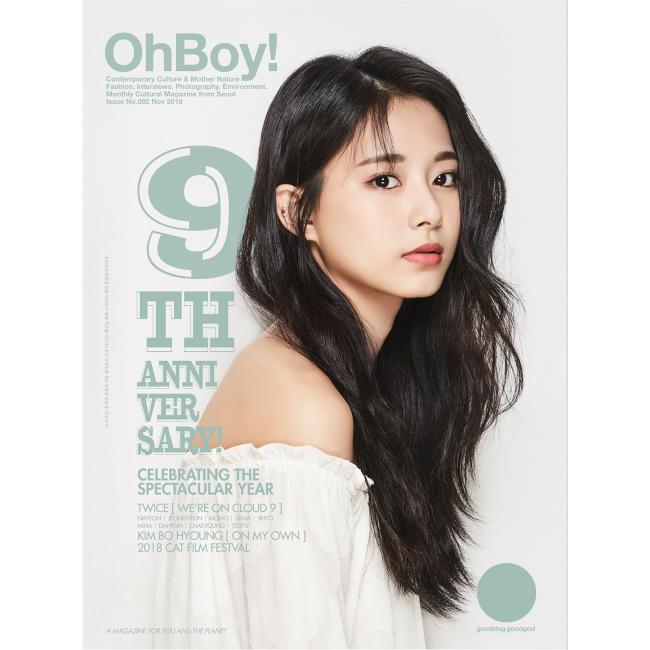[Feature] Wearing love for animals on their sleeve
Vegan fashion trends spreading in Korea
By Choi Ji-wonPublished : Dec. 26, 2018 - 16:56
Stroking down the plush set of colorful fibers, it is hard to tell they could be anything but fur. Hanging in the corner of an ethical fashion store in Dongdaemun, the fur-free fur coats and silk-free silk robes are soft and luxurious, but without the cost of brutality against animals.
Striving to spare harm inflicted on animals for the sake of style, vegan fashion has been spreading in South Korea in recent years.
The word “fake” does not fully describe the trend, as the garments are not purposed as second choice low-quality replacements. They are considered more of a fashionably ethical statement now, rejecting the use of animal materials or cruelty in obtaining them.
Striving to spare harm inflicted on animals for the sake of style, vegan fashion has been spreading in South Korea in recent years.
The word “fake” does not fully describe the trend, as the garments are not purposed as second choice low-quality replacements. They are considered more of a fashionably ethical statement now, rejecting the use of animal materials or cruelty in obtaining them.

Strictly speaking, vegan fashion is different from eco-friendly fashion, although the phrases are often used interchangeably. Something vegan may not necessarily follow best practices for the environment, or vice versa, but the two often go hand in hand.
The international movement toward fashion going vegan began its rapid spread as many prominent luxury brands announced themselves “fur-free.” In October last year, Gucci went fur-free, followed by British fashion company Burberry in September this year. Other pricey labels, including Versace, Giorgio Armani, Tom Ford and Ralph Lauren have also declared moves to ban fur.
Britain’s Stella McCartney -- the second-generation animal rights activist daughter of Linda and the Beetles’ Paul McCartney -- is believed to gotten the ball rolling in 2001, and currently stands as one of the leading eco-friendly fashion brands in the world. Now, slapping on the word “vegan” is a marketing strategy seemingly guaranteeing good sales.
The vegan and similar fashion trends are more prevalent in the winter, as outdoor labels increasingly introduce items that either exclude animal materials or try to stick to ethical standards in using animal matters.

A number of global outdoor companies, including The North Face, Adidas and Reebok, have launched “Responsible Down Standard” certified down coats this winter. RDS is a global standard developed in 2014 to ensure that down and feathers come from animals that have not been subjected to unnecessary harm. Local outdoor brand Black Yak also received RDS certification for all of its down coats released this year.
Some brands have taken it a step further and developed artificial materials as replacements. The North Face introduced its own thermal filling, “V-Motion,” in 2016, and ‘”T-Ball” this year, whereas LG Fashion’s A.T.Corner presented as its 2018 winter centerpiece a mustang jacket with eco-fur lining inside.
According to Galleria Department store, which held an eco-friendly fashion week at the end of last month, environmentally friendly garments, including animal-free ones, have increased by 20 percent compared to last year on the women’s fashion floor.
GS Shopping, a TV shopping firm, exceeded its initial sales goals for RDS certified items, including Reebok’s heavy goose down long coat, which sold out in less than half an hour on the channel.
Uncompromising designs

Head of one of the most prominent Korean vegan fashion brands, Vegan Tiger’s CEO Yang Yoon-a welcomed the boom in attention for the industry and consumers.
“People are showing the utmost interest (in vegan fashion) this year, especially after many luxury brands went ‘fur-free’,” Yang said. “South Koreans are sensitive to what is ‘in trend,’ and people are beginning to appreciate that vegan fashion is not something only the minor group of activists could practice, but which everyone can join in on.”
Yang started Vegan Tiger after working at animal rights organization Coexistence of Animal Rights on Earth for three years. Working at CARE, she often faced people asking what to wear when it is almost impossible to find clothes, especially in the winter, with not even a pinch of animal products.
As someone working in the fashion industry for five years, Yang realized she needed to take a different approach to get more people involved.
“Most people don’t wear animal clothes because they enjoy the fact. They want to protect the animals, but at the same time, they want to wear stylish outfits,” Yang said.
For this reason, Vegan Tiger puts emphasis on design and texture. She tries to use the best of the alternative materials in the market to produce fur coats and silk robes that resemble the original to the tee. As a result, more than 90 percent of her customers are actually unaware that Vegan Tiger is a “cruelty-free” brand until they see the logo, Yang said.

Martin Ko, CEO of Mary’s Pineapple, agreed with Yang that design cannot be compromised for value, especially in Korea. “The value (of animal rights) becomes meaningless if the idea is not even realized because no one takes attention,” Ko said.
In starting the company, Ko yearned for something other than the common artificial materials labeling themselves vegan, and that is when he ran into Pinatex, an alternative leather made of pineapple leaves. “Our fundamental goal is to make this fabric a common replacement for animal leathers, like cotton and polyester,” Ko said.
‘Vegan’ as a lifestyle
Some doubt the permanency of the shift witnessed this year as only a tiny step toward true veganism of fashion. Kim Hyeon-Seong, chief editor of OhBoy! fashion magazine, said that regardless of such efforts made by a few brands and consumers the overall status of animal rights remains low in the fashion industry.
“Fashion is innately about flaunting oneself and is inevitably lavish in its nature,” Kim said. “Insiders of the industry say there are three B’s to success in fashion marketing: beast, beauty and baby. As such a rule suggests, animals are still used like consumables -- injured, exploited and even killed in some worst cases.”
Despite such concerns, Kim encourages the challenges undertaken by the fashion companies. “Whether out of mere marketing strategy or to get in line with a new trend, the brands are reacting to their consumers’ needs and interest,” Kim added. “Companies are trend leaders in some sense, and this could be the prelude to a new norm.”

Fashion officials say in chorus that this sudden spotlight on vegan fashion must be embraced with some caution.
“We must keep in mind that ‘vegan fashion’ should not stop as a ‘hot trend’ that comes and goes. Animal rights should become the ground on which any fashion starts from,” Kim advised.
Both Yang and Ko say their final goal in running their brand is sustainability.
“There are still not many choices for those people who want to dress vegan, as it is not easy for a minor vegan brand to survive,” Yang said. “I just hope this enthusiasm for animal-free clothes lasts, so that more vegan brands could prosper.”
By Choi Ji-won (jwchoikr@heraldcorp.com)


















![[KH Explains] Hyundai's full hybrid edge to pay off amid slow transition to pure EVs](http://res.heraldm.com/phpwas/restmb_idxmake.php?idx=652&simg=/content/image/2024/04/18/20240418050645_0.jpg&u=20240418181020)

![[Today’s K-pop] Zico drops snippet of collaboration with Jennie](http://res.heraldm.com/phpwas/restmb_idxmake.php?idx=642&simg=/content/image/2024/04/18/20240418050702_0.jpg&u=)